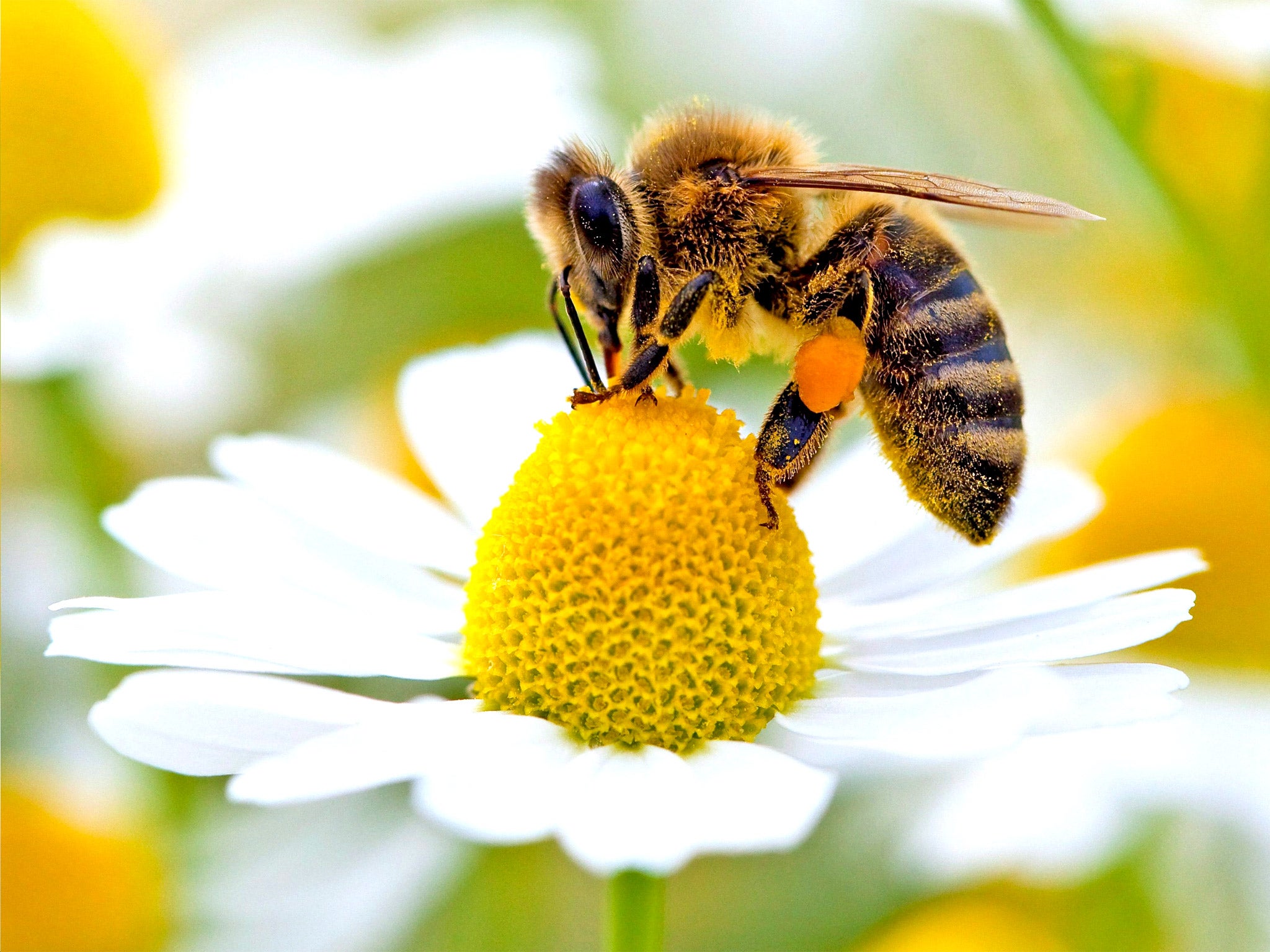Leading UK scientists sting back over criticism of research into bee deaths

Your support helps us to tell the story
From reproductive rights to climate change to Big Tech, The Independent is on the ground when the story is developing. Whether it's investigating the financials of Elon Musk's pro-Trump PAC or producing our latest documentary, 'The A Word', which shines a light on the American women fighting for reproductive rights, we know how important it is to parse out the facts from the messaging.
At such a critical moment in US history, we need reporters on the ground. Your donation allows us to keep sending journalists to speak to both sides of the story.
The Independent is trusted by Americans across the entire political spectrum. And unlike many other quality news outlets, we choose not to lock Americans out of our reporting and analysis with paywalls. We believe quality journalism should be available to everyone, paid for by those who can afford it.
Your support makes all the difference.Leading UK scientists accused the Government of abusing science today after the EU strongly criticised the research it used to justify its position on the nerve agent pesticides widely linked to declining bee populations.
Europe proposed banning the use of three pesticides after authoritative research from its safety authority concluded in January that they posed an unacceptable risk to bees, although a conclusive link has yet to be proved.
But the UK opposed the ban on the use of the pesticides in April, although its opposition was not enough to prevent a Europe-wide prohibition being implemented from December 1 this year.
The Government justified its decision to oppose the ban on research by its UK Food and Environment Research Agency (Fera), which the EU said today was so weak that it did nothing to change its rationale for the ban.
It identified "several weaknesses" in the research, which "raised concerns" about how its authors "elaborated and interpreted the study results to reach their conclusions".
Furthermore, a source at the European Commission said that the organisation was "puzzled" at why Britain seemed so determined to vote against the ban on the basis of this research, amid mounting suggesting a link between the pesticides and declining bee populations that has been peer-reviewed - evaluated by experts in the same field to determine whether it is worthy of publication in a recognised journal.
"The Fera study is full of holes and is fatally flawed," said Professor David Goulson, a bee researcher at the University of Sussex who has published over 200 peer-reviewed articles on insects. Unlike most of the research that has informed the debate on the nerve agent pesticides, known as neonicitinoids, the Fera research was not published in a peer-reviewed journal but rather on the internet.
"There have been hundreds of proper papers that have been through the peer-review process but for some reason Defra (the Environment Department) and Ian Boyd (it's chief scientific advisor) chose this. Instead of doing a study and putting it through peer review, they just put it on the Internet - that's not how science proceeds," Professor Goulson added.
Dr Christopher Connolly, a researcher on neonicitinoids at the University of Dundee, said: "This study is so seriously flawed it's meaningless and it is unfair of Defra to flaunt this research over other studies. I don't think it should be able to be presented to the public until it is peer-reviewed."
The EU's Food Safety Authority (EFSA) drew particular attention to the fact that the "control" bee nests in the experiment, which were supposed to function free of the nerve agent pesticides being examined, quickly became dosed with the same pesticides as the "treated" nests. This happened as the bees flew up to two miles away from their nest in search of pollen, taking it to fields where neonicotinoids were being used.
"If controls are no longer controls, any scientist knows that you need to start again. But this is impossible because neonicotinoids are everywhere," said Professor Goulson.
The government also favoured Fera's research over an indepth study by its cross-party Environmental Audit Committee (EAC) three weeks before the vote in April which strongly recommended the ban.
"The environment department seems to be taking an extraordinarily complacent approach to protecting bees…..We believe that the weight of scientific evidence now warrants precautionary action," said Joan Walley, chair of the EAC.
A spokesman for the Department for the Environment, Farming and Agriculture (Defra) said: ""Fera's study was a robust scientific work. It focused on bumblebees because they are a pollinator not currently covered by the European risk-assessment. "All new studies are useful as they contribute to the body of evidence. At present the body of evidence does not show that neonicotinoids pose an unacceptable risk to bees."
Join our commenting forum
Join thought-provoking conversations, follow other Independent readers and see their replies
Comments